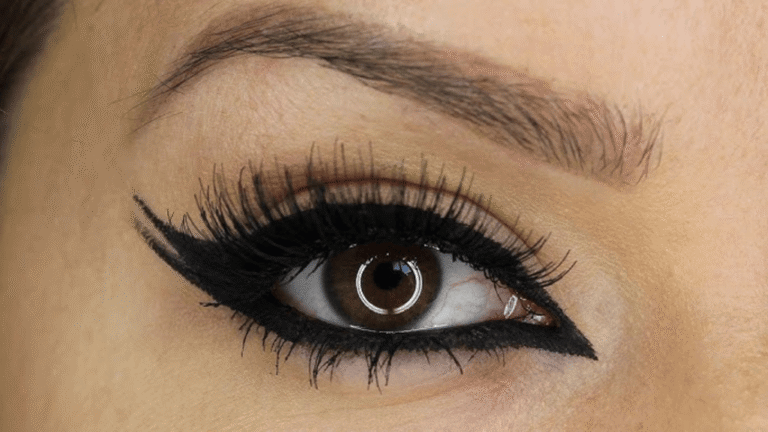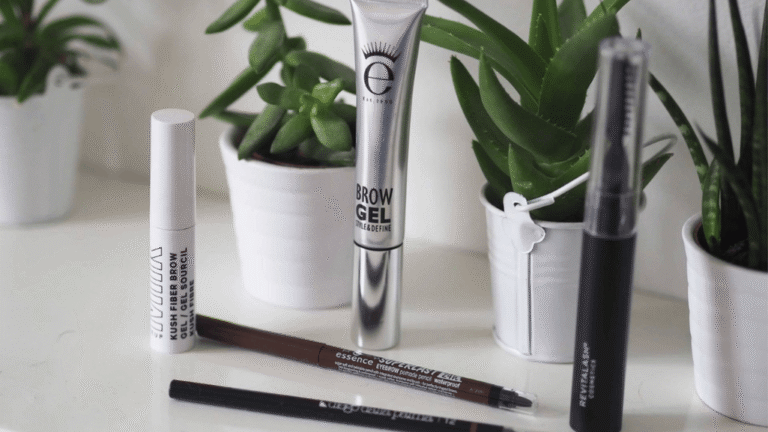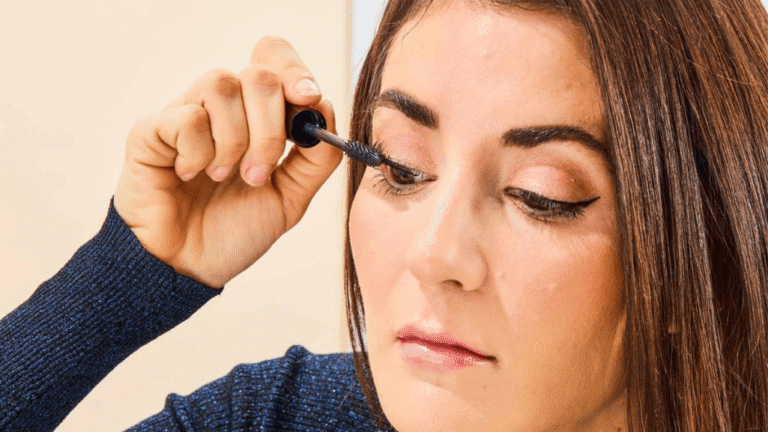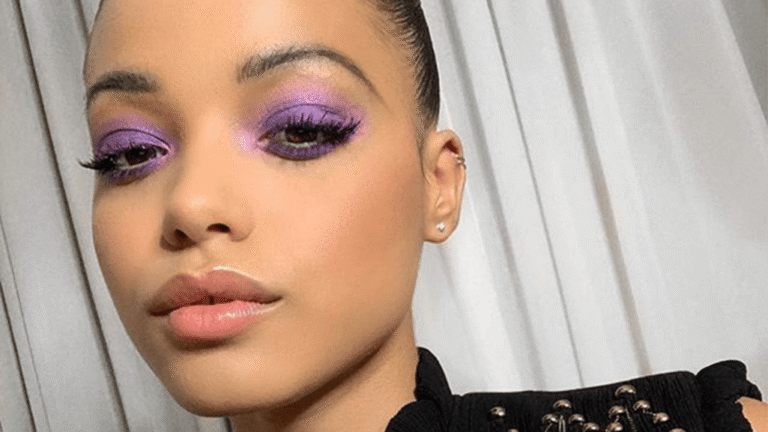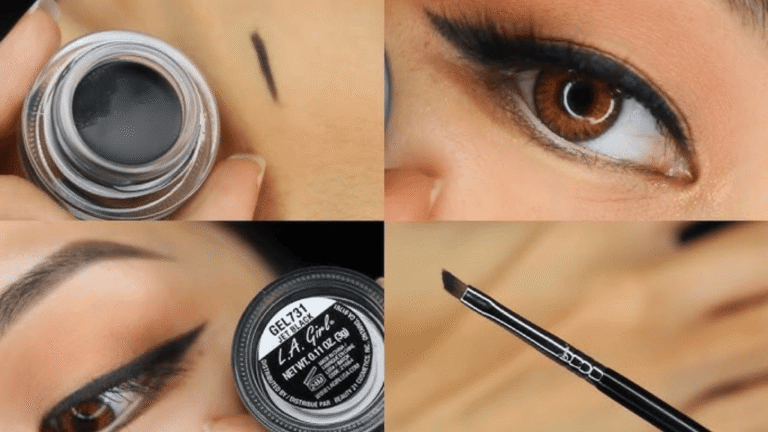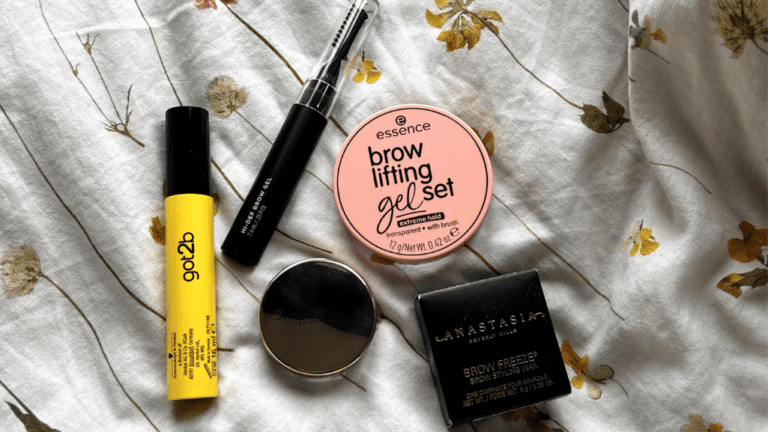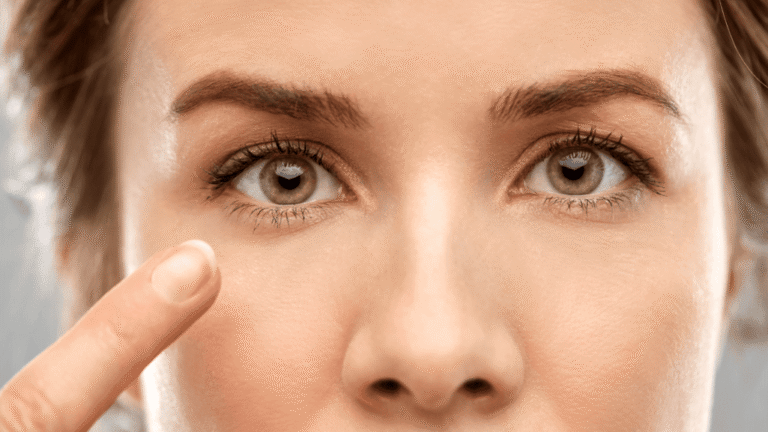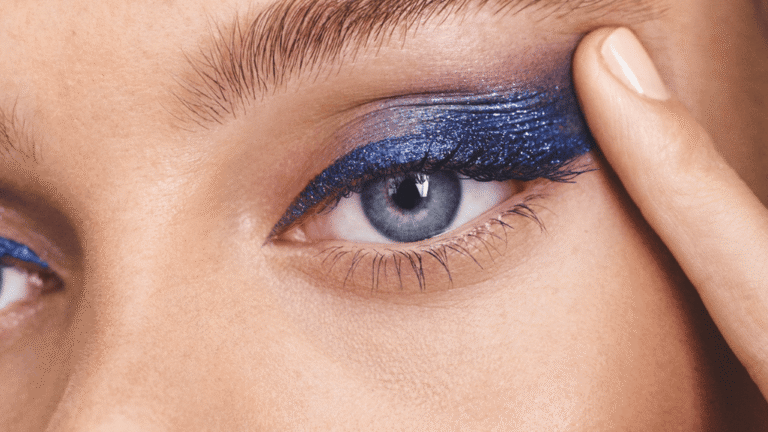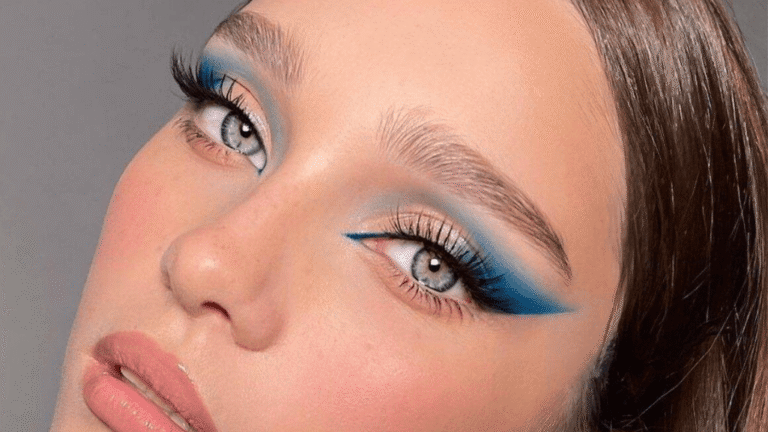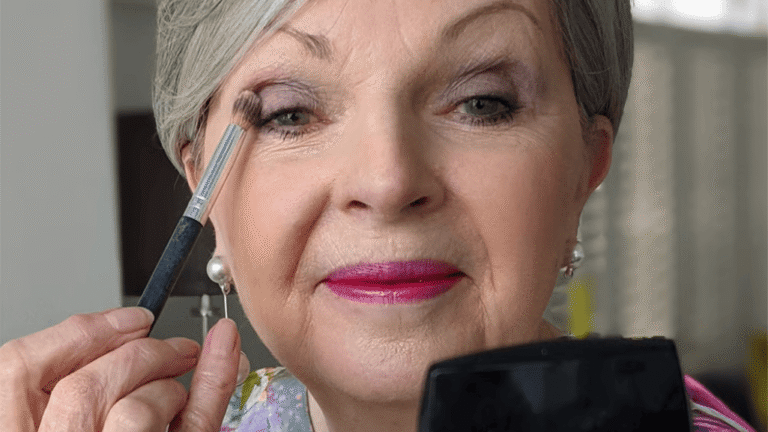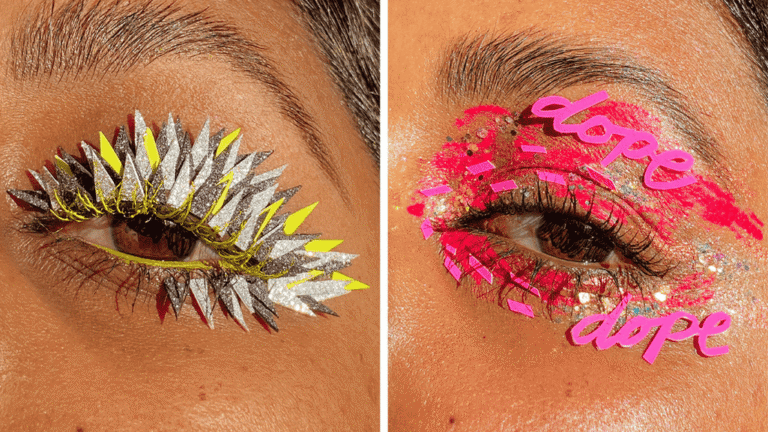Cleaning your makeup brushes is an essential part of maintaining a hygienic beauty routine. But when it comes to traveling, you might wonder, can I bring makeup on a plane? The answer is yes, you can bring makeup on a plane in your carry-on bag. However, there are a few rules and guidelines you need to follow to ensure a smooth airport security experience.
Before packing your makeup brushes, it’s important to clean them properly to remove any leftover product residue and bacteria. In this article, we’ll guide you through the best way to clean your makeup brushes at home, as well as provide some DIY makeup brush cleaner recipes. We’ll also share professional brush cleaning tips and explain why it’s important to prevent bacteria in your makeup brushes.
If you’re wondering how to clean your makeup brushes or what the best way is to keep them germ-free, this article has you covered. Read on to learn more about the importance of clean makeup brushes for your skin and discover expert tips for maintaining your brushes.
So, don’t worry about leaving your favorite makeup brushes behind when you travel. With the right cleaning techniques and knowledge, you can ensure that your brushes are clean, germ-free, and ready for use wherever you go.
Key Takeaways:
- Can I bring makeup on a plane in my carry-on bag? Yes, you can.
- Cleaning your makeup brushes is crucial for maintaining a hygienic beauty routine.
- Follow our step-by-step guide to learn the best way to clean your brushes at home.
- DIY makeup brush cleaner recipes offer a natural alternative for cleaning your brushes.
- Professional makeup artists share their expert tips for brush cleaning.
how can i clean makeup brushes?
Maintaining clean makeup brushes is essential for the overall health of your skin and the effectiveness of your makeup application. Regularly cleaning your brushes helps to remove product residue, oils, and bacteria that can collect on the bristles over time. By keeping your brushes clean, you can ensure a smooth and even makeup application.
One of the main reasons to clean your makeup brushes is to prevent bacteria growth. The accumulation of bacteria on dirty brushes can lead to breakouts, clogged pores, and even skin infections. By cleaning your brushes regularly, you can eliminate bacteria and minimize the risk of these skin issues.
Cleaning your makeup brushes at home is a simple and affordable way to maintain their cleanliness. It allows you to remove impurities and prevent the transfer of bacteria from your brushes to your face. By incorporating a regular cleaning routine, you can keep your brushes hygienic and prolong their lifespan.
Next, let’s explore the best way to clean your makeup brushes at home to ensure optimal hygiene and performance.
Benefits of Cleaning Makeup Brushes
| Benefits | Description |
|---|---|
| Removes Product Residue | Eliminates built-up product residue on the bristles for a more effective makeup application. |
| Prevents Bacteria Growth | Reduces the risk of breakouts, clogged pores, and skin infections caused by bacteria on dirty brushes. |
| Prolongs Brush Lifespan | Regular cleaning helps to maintain the condition and durability of your brushes. |
| Ensures Hygienic Makeup Application | Keeps your brushes clean and prevents the transfer of bacteria from the brushes to your face. |
The Best Way to Clean Makeup Brushes
Start by rinsing your brushes under lukewarm water. Avoid using hot water as it can damage the bristles. Gently massage the bristles with your fingers to remove any excess makeup.
Next, apply a small amount of mild shampoo or brush cleanser to the bristles. You can also use a gentle soap or baby shampoo as an alternative. Massage the bristles in a circular motion to work the cleanser into the bristles.
Rinse the brushes thoroughly under running water until the water runs clear and all the cleanser is removed.
Gently squeeze the bristles with your fingers to remove any excess water. Be careful not to pull or tug on the bristles as this can distort their shape.
Lay the brushes flat on a clean towel or hang them upside down to dry. This ensures that water doesn’t seep into the ferrule (the metal part that holds the bristles) and loosen the glue, which can lead to shedding.
Allow the brushes to dry completely before using them again. Depending on the thickness of the bristles and the size of the brush, drying can take several hours to overnight.
Remember to clean your brushes regularly, at least once a week, to maintain their cleanliness and performance. Cleaning your brushes not only enhances their longevity but also helps prevent bacteria buildup, which can irritate the skin and lead to breakouts.
Incorporating this step-by-step brush cleaning guide into your beauty routine will ensure that your brushes remain in optimal condition and help you achieve flawless makeup looks every time.
Cleaning Options for Makeup Brushes
| Cleaning Option | Pros | Cons |
|---|---|---|
| Mild Shampoo | Gentle on bristles, readily available | May not remove stubborn stains |
| Brush Cleanser | Specifically designed for brushes, effective in removing makeup | Can be more expensive than other options |
| Gentle Soap | Accessible, removes makeup residue effectively | Can leave residue if not rinsed properly |
| Baby Shampoo | Mild and gentle on brushes, affordable | May not remove long-wearing or waterproof products |
DIY Makeup Brush Cleaner Recipes
Olive Oil and Dish Soap
This simple mixture of olive oil and dish soap is an effective way to clean your makeup brushes while also conditioning the bristles.
- Mix one part olive oil with two parts mild dish soap in a bowl.
- Swirl your brushes in the mixture, gently massaging the bristles to remove product buildup.
- Rinse the brushes under lukewarm water until the water runs clear.
- Gently squeeze out any excess water and reshape the bristles.
- Lay the brushes flat on a clean towel to air dry.
Vinegar and Water
Vinegar is a natural disinfectant that can help kill bacteria on your makeup brushes.
- Mix equal parts white vinegar and water in a shallow dish.
- Swirl your brushes in the mixture for a minute or two, ensuring that the bristles are fully submerged.
- Rinse the brushes under lukewarm water to remove any vinegar smell.
- Gently squeeze out any excess water and reshape the bristles.
- Lay the brushes flat on a clean towel to air dry.
Baby shampoo and Coconut Oil
Baby shampoo is a gentle cleanser that effectively removes makeup residue from brushes, and coconut oil adds nourishment to the bristles.
- Combine one tablespoon of baby shampoo with one teaspoon of melted coconut oil in a small bowl.
- Swirl your brushes in the mixture, working the cleanser into the bristles.
- Rinse the brushes under lukewarm water until the water runs clear.
- Gently squeeze out any excess water and reshape the bristles.
- Allow the brushes to dry flat on a clean towel.
Tea Tree Oil and Water
- Dilute five drops of tea tree oil in a cup of water.
- Swirl your brushes in the solution, making sure to coat the bristles.
- Rinse the brushes under lukewarm water until the water runs clear.
- Gently squeeze out any excess water and reshape the bristles.
- Place the brushes on a towel to air dry.
DIY Makeup Brush Cleaner Recipes
| Cleaner Recipe | Ingredients | Instructions |
|---|---|---|
| Olive Oil and Dish Soap | Olive oil Dish soap | Mix olive oil and dish soap in a bowl. Swirl brushes in the mixture, rinse, and air dry. |
| Vinegar and Water | White vinegar Water | Combine vinegar and water in a dish. Swirl brushes in the mixture, rinse, and air dry. |
| Baby Shampoo and Coconut Oil | Baby shampoo Coconut oil | Mix baby shampoo and coconut oil in a bowl. Swirl brushes in the mixture, rinse, and flat dry. |
| Tea Tree Oil and Water | Tea tree oil Water | Dilute tea tree oil in water. Swirl brushes in the solution, rinse, and place on towel to dry. |
Professional Brush Cleaning Tips
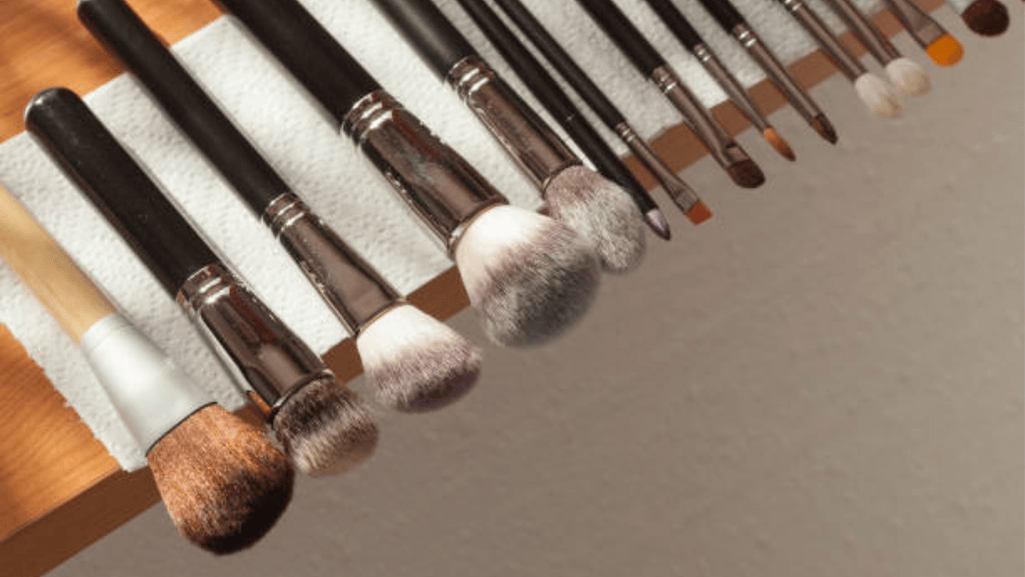
When it comes to cleaning makeup brushes, professional makeup artists have valuable insights and expert recommendations. These professional brush cleaning tips will help you maintain the cleanliness and hygiene of your brushes, while also preventing the growth of bacteria.
1. Use a Gentle Brush Cleaner
Opt for a professional-grade brush cleaner that is designed to effectively clean and disinfect makeup brushes. Look for products that are specifically formulated to remove stubborn makeup residue, oils, and bacteria without damaging the bristles.
2. Deep Clean Regularly
In addition to regular spot cleaning, it is important to deep clean your brushes regularly. This process removes deep-seated product buildup and bacteria that may not be eliminated by spot cleaning alone. Deep cleaning can be done once every 1-2 weeks, depending on the frequency of brush usage.
3. Be Gentle When Washing
When washing your brushes, be gentle to avoid damaging the bristles. Use lukewarm water and a mild soap or brush cleanser to create a lather. Gently swirl the bristles in the lather, ensuring that you clean the entire brush from the base to the tip. Rinse thoroughly until the water runs clear.
4. Dry Brushes Properly
After cleaning, reshape the bristles and lay the brushes flat on a clean towel to dry. Avoid drying them upright, as this can cause water to seep into the ferrule, loosening the bristles. Also, make sure to hang the brushes with the bristles facing downward, as this prevents water from pooling and causing damage.
5. Invest in Quality Brushes
Using high-quality and durable brushes can make a significant difference in the cleanliness and longevity of your brushes. Professional brushes are often made with premium materials and designed to withstand repeated use and frequent cleaning. Investing in quality brushes ensures that they will last longer and maintain their performance over time.
Following these professional brush cleaning tips will not only keep your brushes in optimal condition but also help you achieve a flawless makeup application. By preventing the growth of bacteria, you can protect your skin from breakouts and irritations, promoting a healthy and radiant complexion.
| Professional Brush Cleaning Tips | Preventing Bacteria in Makeup Brushes |
|---|---|
| 1. Use a Gentle Brush Cleaner | 1. Clean brushes regularly to prevent bacterial growth. |
| 2. Deep Clean Regularly | 2. Invest in quality brushes for improved hygiene. |
| 3. Be Gentle When Washing | 3. Dry brushes properly to avoid bacterial contamination. |
| 4. Dry Brushes Properly | 4. Use a gentle brush cleaner to maintain brush cleanliness. |
| 5. Invest in Quality Brushes | 5. Use lukewarm water and mild soap for brush cleaning. |
How to Prevent Bacteria in Makeup Brushes
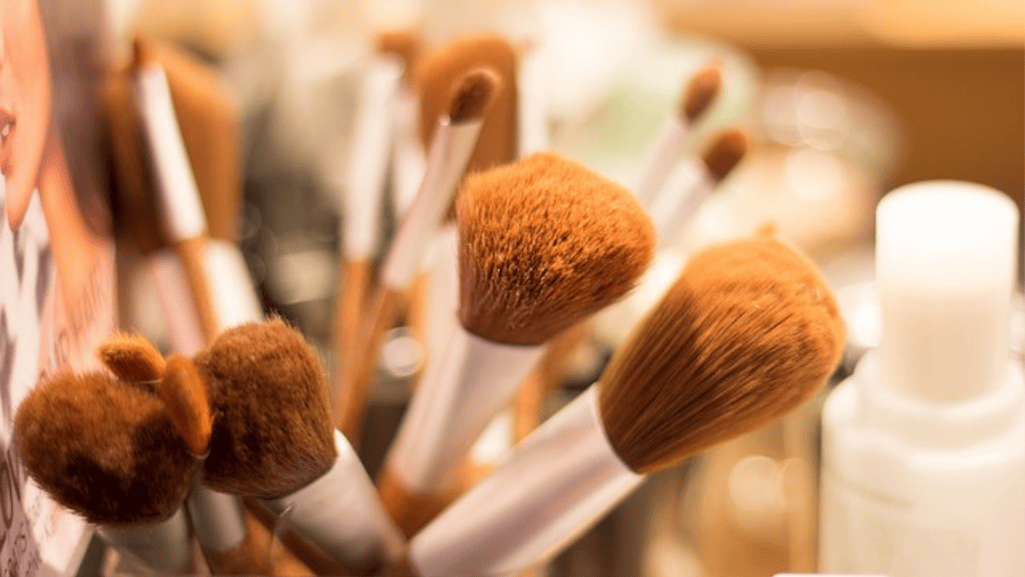
Regularly cleaning your makeup brushes is essential for maintaining their hygiene, but there are also measures you can take to prevent bacteria growth and ensure your brushes stay in optimal condition. By following these professional brush cleaning tips and adopting good practices, you can promote a clean and healthy makeup routine.
1. Store Your Brushes Properly
When not in use, make sure to store your brushes in a clean and dry environment. Avoid leaving them exposed to dust or moisture, as these can promote bacterial growth. Consider using a brush holder or a makeup bag with individual compartments to keep your brushes protected and organized.
2. Avoid Sharing Brushes
While it may be tempting to share your makeup brushes with friends or family, it’s best to avoid doing so. Sharing brushes can transfer bacteria from one person to another, increasing the risk of infections. If you need to use a brush on someone else, make sure to clean it thoroughly before and after use.
3. Use Antibacterial Brush Sprays
If you’re unable to clean your brushes regularly, using antibacterial brush sprays can provide a quick and effective solution to prevent bacterial growth. These sprays are designed to disinfect brushes between uses and help maintain their cleanliness.
4. Wash Your Hands Before Applying Makeup
Before using your brushes to apply makeup, make sure to wash your hands thoroughly. Clean hands minimize the transfer of bacteria onto your brushes, reducing the risk of contamination. Additionally, avoid touching your face unnecessarily to prevent the spread of bacteria.
5. Replace Brushes Regularly
Even with proper cleaning and care, makeup brushes will eventually wear out. Over time, the bristles can become less effective at applying makeup and may accumulate bacteria despite cleaning efforts. It is recommended to replace your brushes every 6 to 12 months or as soon as you notice signs of wear and tear.
By incorporating these preventative measures alongside regular brush cleaning, you can ensure that your makeup brushes remain free from bacteria and provide a hygienic application every time. Consistent care and maintenance of your brushes not only protect your skin from breakouts and infections but also help extend the lifespan of your beloved beauty tools.
The Importance of Clean Makeup Brushes for Your Skin
Maintaining clean makeup brushes is crucial for not only preserving the longevity of the brushes but also for safeguarding the health of your skin. Dirty makeup brushes can harbor harmful bacteria, which can lead to a range of skin issues, including breakouts, clogged pores, and even skin infections.
Regularly cleaning your brushes is a simple yet effective way to ensure a clean and hygienic makeup application, reducing the risk of these skin concerns. By incorporating professional brush cleaning tips into your routine, you can effortlessly prevent the buildup of bacteria and keep your skin looking fresh and healthy.
When you use makeup brushes, they collect oil, product residue, and other impurities from your skin. Over time, these trapped particles create the perfect breeding ground for bacteria, which can be transferred back to your skin with each subsequent use. Cleaning your brushes helps to remove these contaminants and maintain a clean canvas for your makeup.
Dirty brushes can lead to breakouts, clogged pores, and skin infections.
Regularly cleaning your brushes is especially important if you have acne-prone or sensitive skin. These skin types are more susceptible to bacteria and can easily become inflamed or irritated from the buildup of impurities on dirty brushes. By preventing bacteria in makeup brushes through regular cleaning, you can minimize the risk of skin issues and maintain a clear complexion.
Choosing the Right Brush Cleaning Technique
Although there are various brush cleaning techniques available, the most effective method depends on the type of brushes you own and your personal preferences. Some popular options include:
- Using gentle shampoo and lukewarm water to cleanse the bristles
- Utilizing brush cleaning solutions specifically formulated for makeup brushes
- Using a cleansing balm or solid brush cleanser
Regardless of the cleaning method you choose, make sure to thoroughly rinse and dry your brushes to avoid any residue that may negatively impact the application of your makeup.
Professional Brush Cleaning Tips
Professional makeup artists emphasize the importance of routine brush cleaning and offer the following tips:
- Establish a regular cleaning schedule to ensure consistent brush maintenance.
- Use gentle, circular motions when cleaning your brushes to avoid damaging the bristles.
- Consider investing in professional brush cleaning tools, such as brush cleansing mats or mats with different textures to target specific brush types.
- Store your brushes properly in a clean and dry place to avoid contamination between uses.
Cleaning your makeup brushes should be an essential part of your beauty routine. By implementing professional brush cleaning tips and ensuring regular maintenance, you can prevent bacteria in your brushes and enjoy a clean and healthy makeup application every time.
Conclusion
Regularly cleaning your makeup brushes is a crucial step in maintaining a hygienic beauty routine. By cleaning your brushes at home and following proper cleaning techniques, you can ensure they are free from bacteria and product buildup. This not only helps your makeup to apply smoothly and evenly but also prevents breakouts and skin infections.
Make it a habit to clean your brushes regularly using gentle cleansers or DIY cleaner recipes. This will help to remove any residue and oils that can accumulate on the bristles. Additionally, incorporating preventative measures like drying your brushes properly and storing them in a clean environment can further prevent bacteria growth.
By taking the time to clean your makeup brushes, you are not only prolonging their lifespan but also promoting healthy skin. Clean brushes mean a clean and hygienic makeup application, reducing the risk of skin issues. So, prioritize the cleanliness of your brushes for flawless makeup and a healthy complexion.
FAQ
How often should I clean my makeup brushes?
It is recommended to clean your makeup brushes at least once a week to prevent bacteria growth and maintain a hygienic beauty routine.
What should I use to clean my makeup brushes?
You can use a mild soap or brush cleaner specifically formulated for cleansing makeup brushes. Alternatively, you can create your own DIY cleaner using ingredients such as baby shampoo, olive oil, and antibacterial liquid soap.
Can I clean my makeup brushes with water alone?
Water alone may not effectively remove all the makeup residue and bacteria from your brushes. It is best to use a soap or brush cleaner to ensure a thorough cleaning.
How do I dry my makeup brushes after cleaning?
After cleaning, gently squeeze out excess water from the bristles and reshape the brush. Lay the brushes flat on a clean towel or use a brush drying rack to air dry them. Avoid drying them upright as water may seep into the ferrule, damaging the brush.
Can I use the same brush for different types of makeup products?
It is best to use separate brushes for different types of makeup products, such as one for powders and another for creams or liquids. This helps to prevent cross-contamination and ensures a more precise application.
How can I tell if my makeup brushes are clean?
Clean brushes should appear free from residue, stains, or discoloration. The bristles should feel soft, and there should be no lingering scent of makeup or cleanser.
Can dirty makeup brushes cause skin problems?
Yes, using dirty makeup brushes can lead to breakouts, clogged pores, and skin infections due to the buildup of bacteria, oils, and product residue on the bristles. Regular cleaning helps to prevent these issues and promotes healthier skin.





